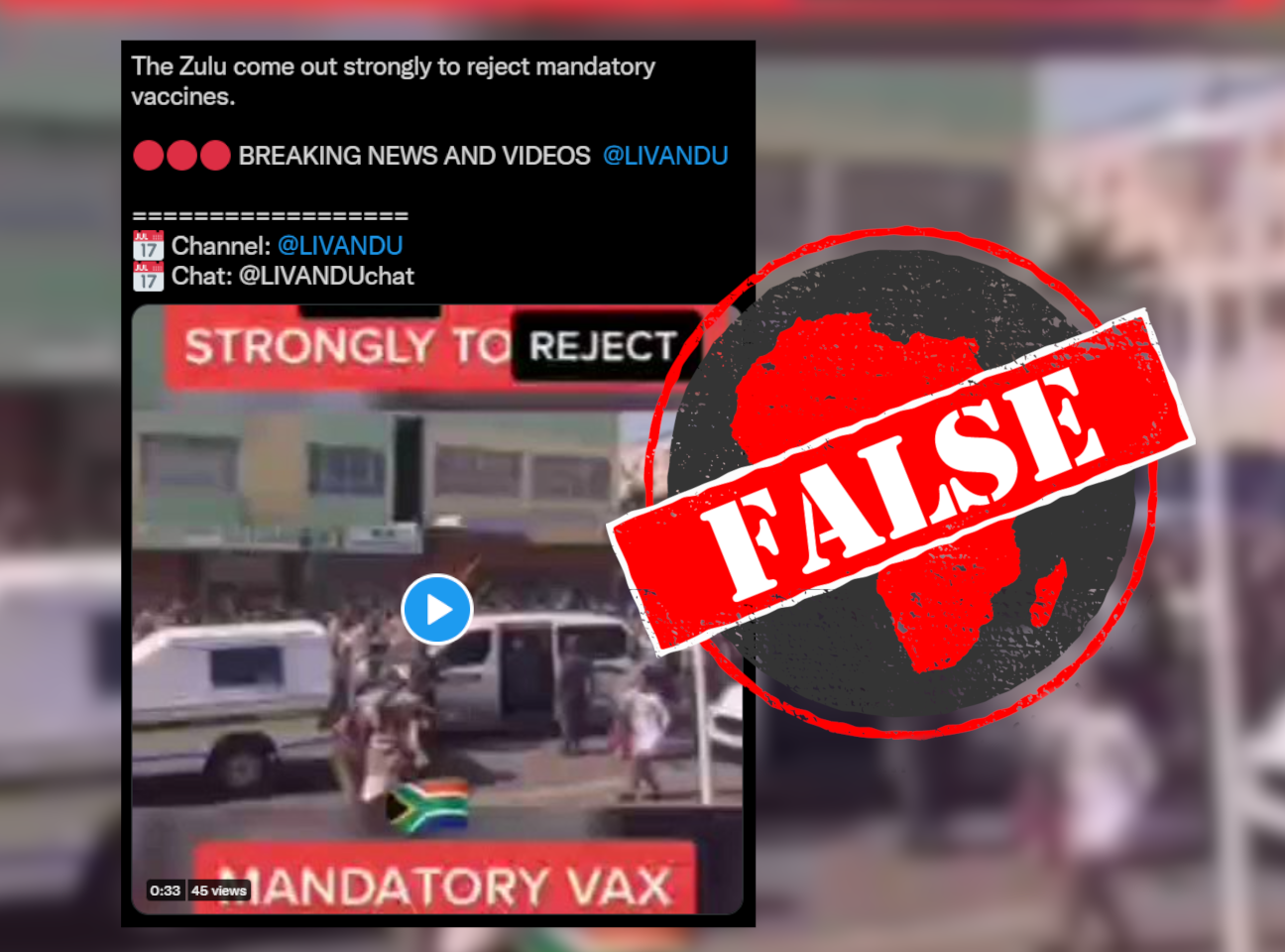“The Zulu come out strongly to reject mandatory vaccines,” reads a tweet posted on 26 September 2021.
It includes a TikTok video of people in traditional Zulu dress marching down a street and chanting. Text over the clip reads: “The Zulu come out to strongly reject mandatory vax,” with an emoji of the South African flag.
The Zulu come out strongly to reject mandatory vaccines.
— Leo_Davinci 🇲🇽♊♎ (@mexicano_001) September 26, 2021
🔴🔴🔴 BREAKING NEWS AND VIDEOS @LIVANDU
==================
📅 Channel: @LIVANDU
📅 Chat: @LIVANDUchat pic.twitter.com/NMEPI9FURU
The Zulu are the largest ethnic group in South Africa and isiZulu the most widely spoken language.
Does the video show Zulu people protesting mandatory vaccination in South Africa? We checked.

No ‘battle cry’ – Heritage Day celebration
The video first appeared on TikTok with the caption: “Battle Cry! Our medicine is not made in a lab! Plants heal us!”
But while the video is real, it doesn’t show a protest against mandatory vaccination.
The original video was posted on Twitter by Siphamandla Gorge, a journalist for South African news outlet eNCA, on 24 September.
Here its caption reads: “#heritageday2021 More Amabutho nezintombi arrive KwaDukuza to commemorate uMkhosi weLembe. AmaZulu King, MisuZulu KaZwelithini is set to address this year's commemoration.” There is no text over the original video.
#heritageday2021 More Amabutho nezintombi arrive KwaDukuza to commemorate uMkhosi weLembe. AmaZulu King, MisuZulu KaZwelithini is set to address this year's commemmoration. #eNCA pic.twitter.com/mn76Pm7jZB
— Siphamandla Goge (@SiphamandlaGoge) September 24, 2021
Heritage Day, 24 September, is a public holiday that celebrates South Africans’ diverse cultural heritage. The country has 11 official languages.
In KwaZulu-Natal province the holiday is celebrated as Shaka’s Day, as 24 September is believed to be close to the time that Zulu king Shaka Zulu died. Shaka Zulu was a conqueror credited for bringing the Zulu kingdom together.
Vaccines not mandatory in South Africa
South Africa’s Covid-19 vaccine programme currently includes the Johnson & Johnson and Pfizer jabs.
South Africa’s government has not made vaccination mandatory. Some businesses have opted to insist that employees are vaccinated against the disease.
Republish our content for free
For publishers: what to do if your post is rated false
A fact-checker has rated your Facebook or Instagram post as “false”, “altered”, “partly false” or “missing context”. This could have serious consequences. What do you do?
Click on our guide for the steps you should follow.
Publishers guideAfrica Check teams up with Facebook
Africa Check is a partner in Meta's third-party fact-checking programme to help stop the spread of false information on social media.
The content we rate as “false” will be downgraded on Facebook and Instagram. This means fewer people will see it.
You can also help identify false information on Facebook. This guide explains how.


Add new comment